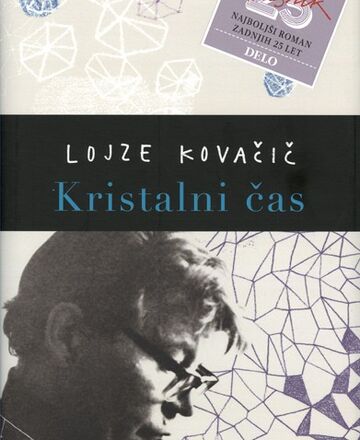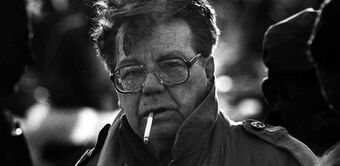
- Publisher: Beletrina
- 358 pages
- Author: Lojze Kovačič
- Original title: Kristalni čas
Kovačič wrote Crystalline Time in the years before Slovenian independence, when disease pushed him to the brink “between the illusion of death and the illusion of life”. Bedridden, Kovačič would note down his emotions daily, and, as the scope of these notes grew, they evolved into the writer’s confron- tation with himself, a recapitulation of his experiences and an insightful self-reflection. Kovačič returns to the past that he had captured in his earlier works through the eyes of a boy and a young man, this time seeing it from the palimpsestic perspective of a mature, wise man at the end of his life.
Crystalline Time is thus a mosaic-like autobiographical novel of extended reflections on events and people that shaped the author and his work, as well as essayistic sections, anecdotes and critical portraits of contemporaries. According to the author, the novel is a “docu-
ment of the soul”, in which he confronts the present while ex- amining different periods of his life. At once a candid personal testament and a literary masterpiece of the highest order, it explores universal themes of death, faith and religion, love in all its forms, and writing as “the only excuse for living”.
Lojze Kovačič
Lojze Kovačič (1928–2004) has established himself as a powerful Slovenian voice in the modern literary canon. His works articulate the limits of the human condition in an introspective and highly philosophical manner, whilst also exploring morality and existential topics such as life and death, displacement and exile, dream
and reality. Although born in Switzerland, Kovačič was exiled to Ljubljana, Slovenia with his German mother and Slovenian father in 1938. As the acclaimed recipient of the Prešeren Award, Slovenia’s highest award for artistic achievement, in 1973 and a three-time winner of the Kresnik Award for best novel of the year in 1991, 2004 and 2016 – the latter being the Silver Kresnik Award – Kovačič was an accomplished author of both children’s and
adult fiction who left behind a
luminescent literary legacy and has been compared to great Central European writers such as Danilo Kiš, Sándor Márai, Imre Kertész and Ismail Kadare.










 RSS
RSS
